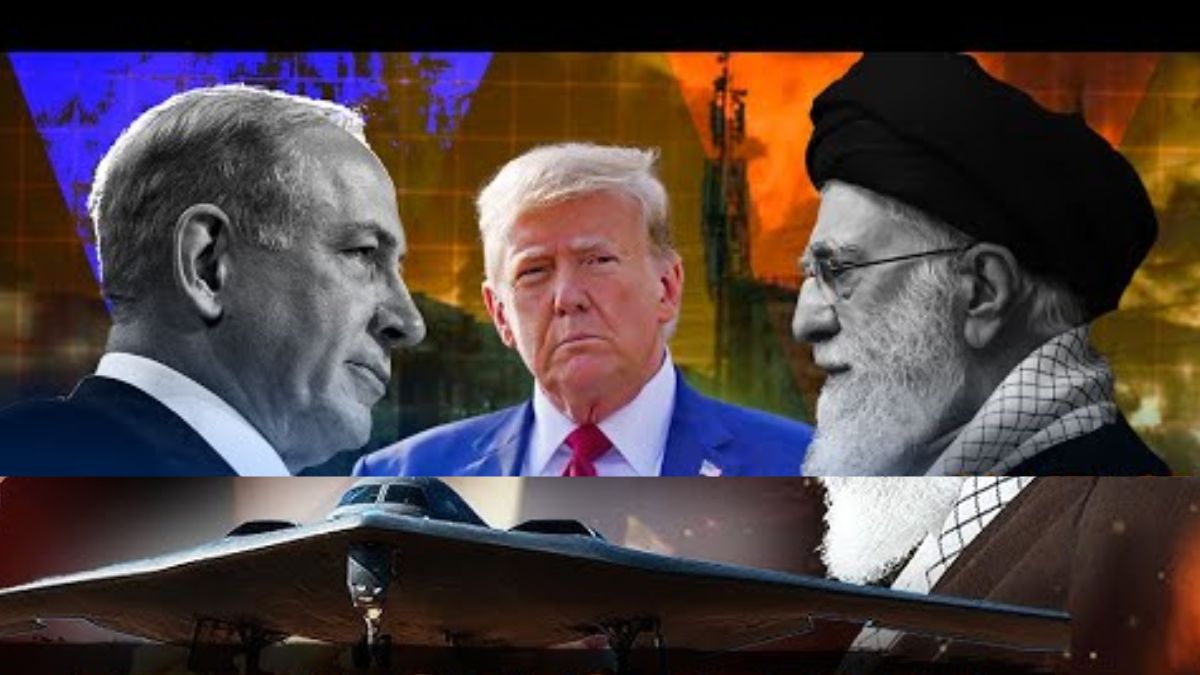Just over a month ago, Israeli Prime Minister Benjamin Netanyahu appeared increasingly sidelined by US President Donald Trump, who toured the West Asia without stopping in Israel, long considered Washington’s closest ally in the region.
To Netanyahu’s dismay, Trump lifted sanctions on neighbouring Syria and expressed interest in reviving nuclear negotiations with Iran, moves the Israeli leader has consistently opposed.
But five weeks later, the narrative has flipped: U.S. bombers have struck Iran’s nuclear sites—realising a decades-long goal of Netanyahu, who has long urged Washington to take military action against Tehran’s atomic programme.
The episode underscores a defining trait of Netanyahu’s political career: despite strained ties with successive US presidents, he often prevails in shaping U.S. policy to align with his own objectives.
Over more than 30 years, Netanyahu has locked horns with American leaders—publicly challenging, defying, and sometimes even embarrassing them. Yet through both Republican and Democratic administrations, US military and diplomatic support for Israel has remained steadfast. Washington continues to be Israel’s primary arms supplier and diplomatic protector.
“He probably has concluded that he always gets away with it,” said a senior UN official in Jerusalem, speaking anonymously. “It’s hard to argue otherwise.”
Just weeks ago, opposition leader Yair Lapid accused Netanyahu of wrecking U.S.-Israel relations. Now, the recent strikes represent perhaps the closest military coordination yet between the two countries against a shared adversary.
Impact Shorts
More ShortsClashes with US presidents
Netanyahu’s resistance to US pressure has deep roots. Just a month into his first term in 1996, his blunt manner irked then-President Bill Clinton. “Who the f— does he think he is? Who’s the f—ing superpower here?” Clinton reportedly asked aides after their meeting.
Nevertheless, vital U.S. military aid continued to flow.
When Netanyahu returned to power in 2009, relations with President Barack Obama turned frosty, particularly over Israeli settlement expansion and the Obama administration’s pursuit of a nuclear deal with Iran.
In 2015, Netanyahu addressed the U.S. Congress—without informing the White House—warning that the Iran nuclear accord would pave the way for an atomic bomb. Though Obama was reportedly furious, Washington still finalised the largest-ever U.S. military aid package to Israel the following year: $38 billion over a decade.
Many analysts believe Netanyahu relies on the enduring support of US evangelical Christians and Jewish Americans to ensure continued aid—regardless of political turbulence.
Trump, Gaza and Iran
When Hamas launched a surprise attack on Israel in October 2023, then-President Joe Biden rushed to Israel to express solidarity and authorised large-scale arms transfers.
But tensions between Biden and Netanyahu mounted as the humanitarian crisis in Gaza worsened. Biden eventually paused some weapons shipments and imposed sanctions on Israeli settlers accused of violence.
Netanyahu welcomed Trump’s return to the presidency following last November’s election. But Trump, too, initially showed frustration with the prolonged Gaza war and even initiated diplomatic outreach to Iran during a meeting with Netanyahu in early April.
Although Trump never publicly endorsed Israel’s military strategy, he also didn’t oppose it. According to US and Israeli sources, Netanyahu used the window of ambiguity to press ahead.
On June 13, Israel launched a major air assault on Iran. Behind the scenes, Israeli officials pushed Trump to join, urging him to “finish the job.”
“Mr President, Finish the job!” read large billboards across Tel Aviv.
On Sunday, when U.S. bombers struck Iran’s heavily fortified nuclear facilities, the moment marked a dramatic turn in the conflict—and a personal victory for Netanyahu.
“Congratulations, President Trump,” Netanyahu said in a video statement. “Your bold decision to target Iran’s nuclear facilities with the awesome and righteous might of the United States will change history.”
“May God bless our unshakeable alliance, our unbreakable faith,” he concluded.
Trump’s intervention – despite his past pledges to avoid another “forever war” – threatens to dramatically widen the conflict, after Israel launched an unprecedented bombing campaign on Iran last week, with Tehran vowing to retaliate if Washington joined in.
Iranian Foreign Minister Abbas Araghchi accused the United States of sabotaging diplomacy after talks with European powers.
“This week, we held talks with the E3/EU when the US decided to blow up that diplomacy,” he wrote on X.
Aragchi later told reporters in Istanbul the United States and Israel had “crossed a very big red line”, asserting Iran would continue to defend itself “by all means necessary”.
However, Israeli Prime Minister Benjamin Netanyahu hailed the US strikes, saying Trump’s decision to “target Iran’s nuclear facilities with the awesome and righteous might of the United States will change history”.
In response to the US attack, Iran’s armed forces said they targeted multiple sites in Israel including Ben Gurion airport, the country’s main international gateway near Tel Aviv.
With inputs from agencies
)